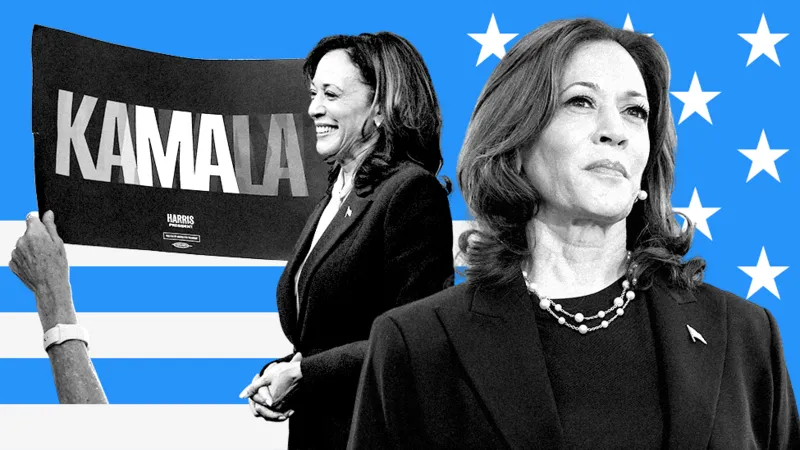Kamala Harris is stepping onto the national stage at the Democratic National Convention in Chicago as the party’s nominee for president.
This is a big deal because, for a long time, even some members of her own party doubted whether she could lead the country.
Harris, 59, has faced many challenges, including from President Joe Biden, whom she served as vice-president.
However, since taking over as the Democratic nominee in mid-July, she has gained significant momentum with more support in polls, fundraising, and large crowds at rallies. But this success wasn’t always guaranteed.
Back in 2019, Harris tried to run for president but her campaign fell apart before the primaries. Her vice-presidency had a rocky start, with struggles in high-profile interviews, staff changes, and low approval ratings.
For three and a half years in the White House, she had trouble connecting with American voters. Over time, though, Harris improved her political skills, built strong alliances, and gained credibility on issues like abortion rights, which are important to Democrats.
In a way, she was preparing for this moment all along. When she accepts the Democratic nomination, she’ll have the chance to prove to her party that she’s capable of defeating former president Donald Trump, even though the race is still very unpredictable.
Harris’s political journey started years ago when she was California’s attorney general, where she earned a reputation as a rising star. Despite facing controversy as a prosecutor, she won a Senate seat in 2016.
During her Senate career, she became known for tough questioning, especially during Brett Kavanaugh’s Supreme Court confirmation. But in her 2019 presidential run, she couldn’t establish a clear political identity.
A notable moment came when she criticized Biden over racial desegregation in schools, but her campaign couldn’t maintain momentum due to internal conflicts and unclear messaging.
When Biden chose her as his running mate in 2020, Harris became the first woman of color to be nominated for vice-president, and eventually the first female vice-president in U.S. history.
However, her time as vice-president wasn’t always smooth. Early on, she faced a lot of criticism during a foreign trip to Guatemala and Mexico, where an interview about the U.S.-Mexico border raised eyebrows.
Despite the challenges, she stepped into a larger role on key issues like abortion after the Supreme Court’s Roe v. Wade ruling was overturned.
Harris became the lead voice on this issue, tapping into the frustration of voters and helping Democrats perform well in the 2022 midterm elections.
Harris has always been focused on coalition-building, which helped her build a wide network of support for her future presidential ambitions. Initially, she aimed for a 2028 White House bid, assuming Biden would win a second term in 2024.
But when Biden announced his decision to step down, Harris quickly mobilized her political machine, uniting the party behind her and solidifying her position as the Democratic nominee.
Now, as she heads into the campaign, Harris still has work to do. While her entrance into the race has been met with enthusiasm, it’s unclear if she can appeal to a broad enough base to win.
She’s made gains with Black, Latino, and young voters, but struggles with other key groups that were part of Biden’s winning coalition in 2020. In key battleground states, recent polls show her either ahead or tied with Trump, reflecting a very tight race.
Her upcoming speech at the Democratic Convention will be critical as she lays out her vision for the country, tackles pressing issues like crime, inflation, and immigration, and addresses party divisions over the ongoing conflict in Gaza.
Harris has built a strong foundation for her presidential run, and her supporters believe she’s ready for the challenge, even though the road ahead remains tough .
Credit : BBC
https://www.bbc.com/news/articles/c4gqr48zld2o

